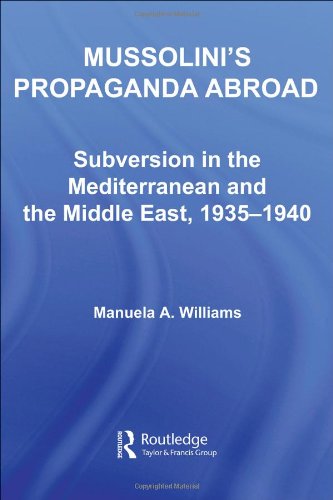

Most ebook files are in PDF format, so you can easily read them using various software such as Foxit Reader or directly on the Google Chrome browser.
Some ebook files are released by publishers in other formats such as .awz, .mobi, .epub, .fb2, etc. You may need to install specific software to read these formats on mobile/PC, such as Calibre.
Please read the tutorial at this link: https://ebookbell.com/faq
We offer FREE conversion to the popular formats you request; however, this may take some time. Therefore, right after payment, please email us, and we will try to provide the service as quickly as possible.
For some exceptional file formats or broken links (if any), please refrain from opening any disputes. Instead, email us first, and we will try to assist within a maximum of 6 hours.
EbookBell Team

5.0
90 reviewsThis is the first major study in English of Fascist Italy’s overseas propaganda. Using rare Italian and French captured documents, this is also the first investigation into the relationship between Mussolini’s regime and Arab nationalist movements
This new account covers propaganda and subversive activities engineered by the Italian government in the Mediterranean and the Middle East from 1935 until 1940, when Italy entered the war. It assesses the nature of the challenge brought by the Fascist regime to British security and colonial interests in the region.
Fascist propaganda, in particular in the Arab Middle East, must be regarded as an expression of Mussolini’s foreign policy and his attempts to build an Italian empire that would stretch beyond the Mediterranean, gaining control over the exits, Gibraltar and Suez, which were in the hands of the British and the French.
The activities of individual agents and organizations are carefully reconstructed and analyzed to highlight the seemingly contradictory objectives of the Italian government: on the one hand, Rome was courting the Arab nationalist movements in Egypt and Palestine, which were seeking the support of external forces capable of providing political, financial and military backing needed to overthrow foreign rulers; on the other, the regime was promoting further territorial expansion in Africa. These aspects build into an excellent picture of this fascinating period of modern history.
This book will be of great interest to all students and scholars of politics, media, Italian history and propaganda.